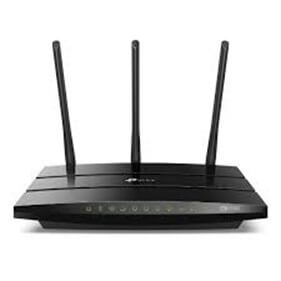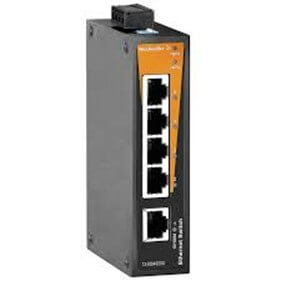Ethical Hacking
Best 16 No-Log VPNs (TRULY ANONYMOUS | PRIVATE) in 2021
No log VPNs are the VPNs that don't keep logs and does not exchange user information using the...
Routers are computer networking devices that serve two primary functions: (1) create and maintain a local area network and (2) manage the data entering and leaving the network as well as data moving inside of the network.
It also helps you to handle multiple networks and routes network traffic between them.
In your home network, your router has one connection to the Internet and one connection to your private local network. Moreover, many routers also contain built-in switches that allow you to connect multiple wired devices.

In this tutorial, you will learn:
A network switch is a computer networking device which connects various devices together on a single computer network. It may also be used to route information in the form of electronic data sent over networks. Since the process of linking network segments is also called bridging, switches are usually referred to as bridging devices.

A router connects multiple networks and tracks network traffic between them. It has one connection to the internet and one connection to your private local network.
Moreover, many routers contain built-in switches that allow you to connect multiple wired devices. Many routers also contain wireless radios that allows you to connect Wi-Fi devices.
A network switch is also called bridging hub, switching, or MAC bridge. Switches devices use MAC addresses to forward data to the right destination. Operating system at the data link layer uses packet switching to receive, process, and forward data.
A switch offers support to handle the data and knows the particular addresses to send the message. It can decide which computer is the message intended for and send the message directly to the right computer. The efficiency of the switch can be improved by providing a faster network speed.
Here are some important differences between the Router and Switch:
| Router | Switch |
| Routers operate at Layer 3 (Network) of the OSI model. | Network switches operate at layer two (Data Link Layer) of the OSI model. |
| Router will offer NAT, NetFlow and QoS Services | Switch will not offer such services. |
| Store IP address in the routing table and maintain an address on its own. | Store MAC address in a lookup table and maintain an address on its own. However, Switch can learn the MAC address. |
| Networking device 2/4/8 ports. | A switch is a multi-port bridge. 24/48 ports. |
| Less Duplex | In Full Duplex, So, no Collision occurs. |
| The speed limit is 1-10 Mbps for wireless and 100 Mbps for wired connection. | The speed limit for the switch is 10/100Mbps. |
| Helps users to take the faster routing decision | Likely to take a more complicated routing decision |
| The router can perform NAT | Switches can't perform NAT |
| In various types of network environments (MAN/ WAN), the router works faster compares to Switch. | In a LAN environment, a switch is faster than Router. |
| In Router, every port has its own broadcast domain. | The switch has one broadcast domain except VLAN implemented. |
| Router operations revolve around IP Addresses. | Switches work with MAC addresses as it operates within the confines of a single network. |
| Routers can work within both wired and wireless network situations. | Switches are restricted to wired network connections. |
Here, are important applications of Router:
Some applications of switches are:
Here, are some pros/benefits of Router:
Here, are pros/benefits of using Switch
Here, are cons/drawback of Router:
Here, are cons/drawbacks of using Switch:
No log VPNs are the VPNs that don't keep logs and does not exchange user information using the...
Information plays a vital role in the running of business, organizations, military operations,...
Ethical Hacking is identifying weaknesses in computer systems/networks and coming with...
What is Digital Forensics? Digital Forensics is defined as the process of preservation,...
What is Password Cracking? Password cracking is the process of attempting to gain Unauthorized...
{loadposition top-ads-automation-testing-tools} China has placed numerous restrictions on...